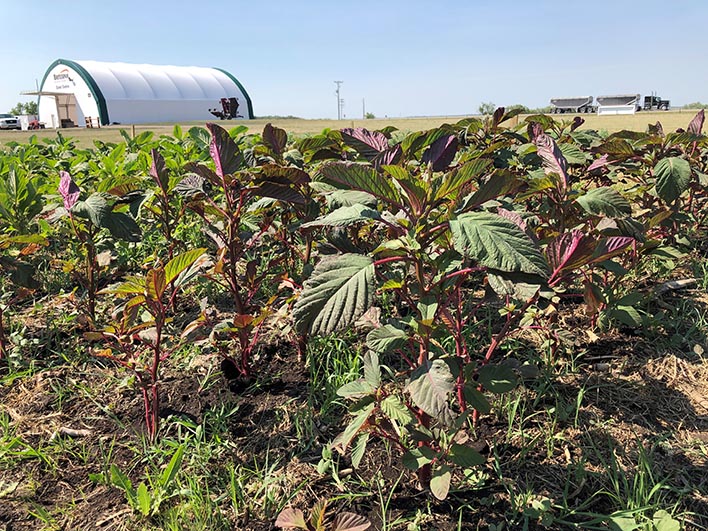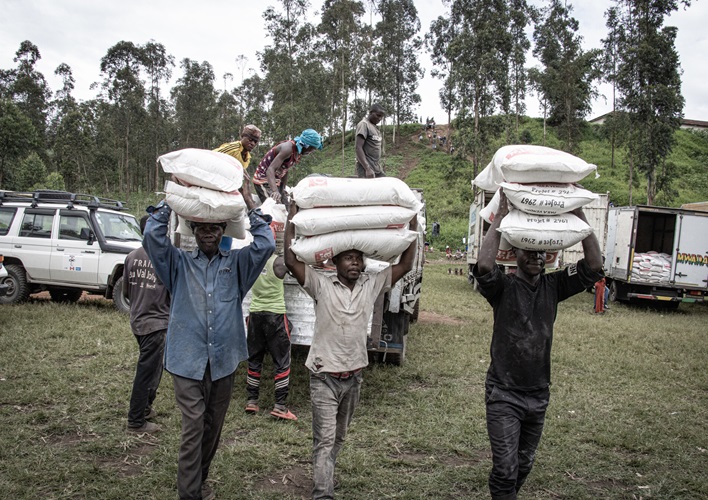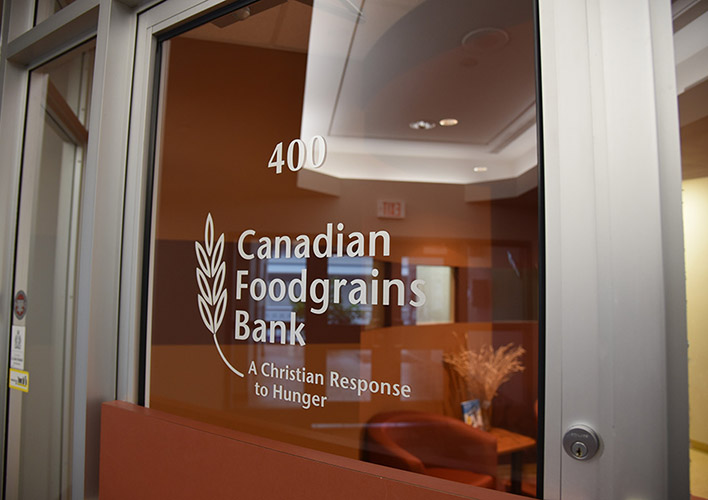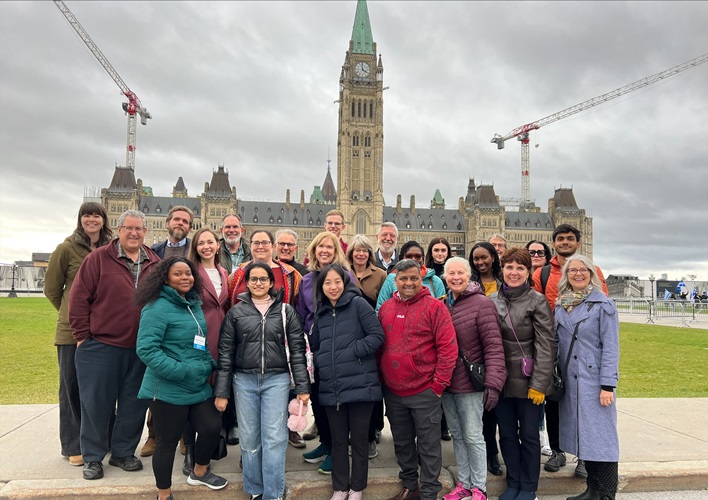Teff, amaranth, sorghum and millet aren’t your average Canadian prairie grain crops.
But they’ve been planted on a plot of land at Discovery Farm Langham, where Rick Block, Saskatchewan representative for Canadian Foodgrains Bank, is planning for the unusual crops to help share the story of the challenges and opportunities faced by small-scale farmers around the world.
“What a lot of Canadians don’t realize, is that the majority of people around the world who experience chronic hunger are actually farmers in Asia and Africa, who farm on plots of land that are quite small—often less than two acres,” says Block.
It’s Block’s hope that Saskatchewan folks intrigued about how the farming practiced by such farmers in countries like Kenya and Ethiopia differs from here on the prairies will come out to visit the plot.
“At the Foodgrains Bank, one of the ways we’re working to end hunger is by addressing the challenges faced by small-scale farmers head on, by promoting things like mulching, minimal soil disturbance, and crop rotations in our projects,” says Block. “Through the plot at Discovery Farm Langham, we’re hoping families will come by and look at what we’ve got growing, and learn about what working to end hunger looks like on a practical level.”

AIM volunteers work on the land.
Block and a team of four young volunteer agronomists have been tending the teff, amaranth, sorghum and millet through the growing season.
“I’m interested in seeing how these crops grow here – I want to show people, ourselves included, a glimpse of what its like as a small-scale farmer,” says Mark Halliday, an agronomist for Cargill in Saskatoon who volunteers on the plot.
Syngenta agronomist Kara Gervin is volunteering her expertise as well. “It’s been cool to see the progression of what we’ve done here over three years, each year the story of this plot develops further.”
To learn more about the plot or arrange a visit, contact Rick Block (saskatchewan@foodgrainsbank.ca) or come out on September 2 to a Canadian Foodgrains Bank Learning event at Discovery Farm Langham. Food, walking tours, and a presentation about the Foodgrains Bank international work in conservation agriculture training will be part of the evening.




